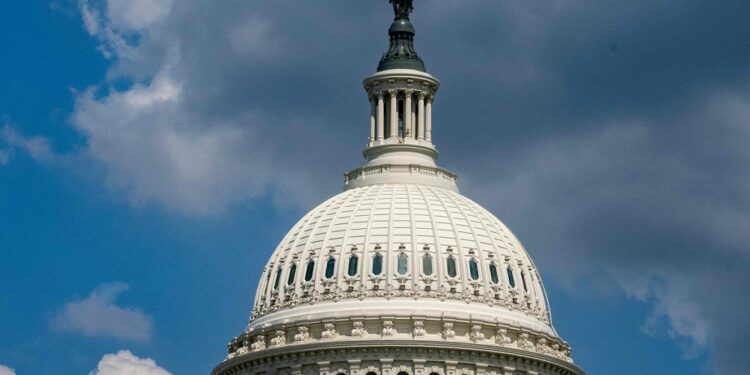(Washington) The American senators came to the heart of the matter on Sunday during the examination of the megaproject of budgetary law wanted by Donald Trump, before the final vote which could intervene on Monday.
The upper room of the Congress officially started its exam on Saturday evening, but the Democrats, criticism of the text, insisted that it was read in full before elected officials. Reading the thousand pages pushed the start of the debates from around sixteen hours.
Recalcitrant republican senators had already delayed the official opening of the exam, some wishing to make substantive changes to the text before subjecting it to the voting in the hemicycle.
The opening motion was thus accurately adopted by 51 votes to, 49 against (including 2 Republicans).
Consequently, the vote of the bill, already adopted by the House of Representatives, could take place on Monday. Asked about CNN, the Republican Senator of Alabama, Katie Britt, said that he would have “probably” placed on this date.
The parliamentary shuttle will then return to the lower room to approve the revised version.
Donald Trump had urged Republican senators on Thursday to overcome their reluctance on certain points of his budgetary “big and beautiful law” and to adopt the text as quickly as possible, the centerpiece of his economic program.
The American president, who wants the bill to reach his office for promulgation before Friday, the day of the national holiday, however recognized that the calendar was uncertain.
He accused Democrats of delaying the procedure for political reasons. “There are a lot of bad people in the Democratic Party,” he said in an interview broadcast on Sunday on the Fox News channel.
The “One Big Beautiful Bill”, as Donald Trump has called it, provides for the extension of tax credits adopted during his first mandate, but also the elimination of taxation on tips, or additional billions of dollars for defense and the fight against immigration.
The Congress Budget Office (CBO), responsible for non-supported the impact of public finance bills, estimated on Sunday that it would increase public debt by more than $ 3,000 billion by 2034.
To compensate for the extension of these tax credits, valued at $ 4500 billion, the presidential party has planned in particular to slash in Medicaid, the public health insurance program depended on millions of Americans with modest income, to greatly reduce the SNAP program, the main food aid of the country, and to return to tax incentives for renewable energies.
The democratic opposition, a minority in the two chambers, continues to criticize tax reductions for the richest to the detriment of a working class already overwhelmed by inflation.



